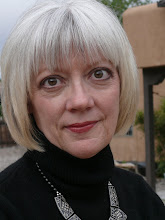There was a conversation on medical librarians discussion list that addressed getting buy-in for work on knowledge management in hospitals. I wanted to share my response here.
I think this is an important need for the library profession to address within healthcare, but we first need to define what we mean and then see if it tracks with what both health care leadership and the clinical force thinks it is. I have been working on trying to translate these concepts effectively to engage health care in discussions on this topic, and it has been slow going. Only through improved dialogue will the translational work come together to help us really see and be able to measure the improvements and how they relate to the involvement of info pros. For example:
In some circles in medicine, KM tends to refer to patient records and decision support at the bedside. (see Davenport TH, Glaser J. Just-in-time delivery comes to knowledge management. Harv Bus Rev. 2002 Jul;80(7):107-11, 126.)
In other places -- notably the IHI 100,000 lives campaign (and recently launched 5 Million Lives Campaign) -- knowledge management is see as a component of their "framework for spread" that allows for the learning in the campaign hospitals to be spread throughout their organization and to others in medicine.
Massoud MR, Nielsen GA, Nolan K, Schall MW, Sevin C.
A Framework for Spread: From Local Improvements to System-Wide Change.
Cambridge, Massachusetts: Institute for Healthcare Improvement; 2006
The basic process IHI has implemented has been built -- as I understand it - on the ideas of a librarian, Nancy Dixon, and her book "Common Knowledge." (2000, HBSchool Press: ISBN: 0875849040.) It's a terrific book and I highly recommend it.
I have been advocating for an expanded role for librarians in this function for 10 years now. I see it as a key way we can contribute to safety improvements - through the sharing of stories, facilitating dialogue, convening learning groups and journal clubs, building knowledge maps, (Zipperer L, Gluck J, Anderson S: Knowledge maps for patient safety. Journal of Hospital Librarianship. 2002; 2(4): 17-35.), etc. As a patient safety fellow and as an alum of that group, I have been working on an assessment tool to try and understand how the process of knowledge management and transfer fits in with an organization's ability to learn - parts of that process certainly involve librarians in this important work.
It is a role I became convinced we could play early on in my work in patient safety--even developed a book proposal on it! - that alas has yet to be realized. I am VERY interested in seeing how a corporate model for knowledge management could play out in hospitals and how our profession can help implement it. I look forward to a continued "outside of the box" dialogue about this!
The IOM noted in 2004 that hospitals need to "use knowledge management practices to establish the organization as a "learning organization." (Keeping Patients Safe: transforming the work environment of Nurses (2004) IOM; pg 108.) The learning organization (born from systems thinkers) has been advocated is a key component to safety improvements in healthcare. There is a great need here -- it is a tremendous opportunity for us to play an empowered and effective role in improving the quality and safety of care.
Any experience from organizations on implementing knowledge mangaement programs, tools they may have created, teams put in place (hopefully involving librarians!) and other tidbits about realizing this in the field would be greatly appreciated.
Unleash the power of patients to make care safer around the world: an essay
by Helen Haskell.
-
Haskell H. BMJ. 2019;366:l5565.
6 years ago

2 comments:
Lorri, wonderful to trip over your work again. I have recently returned from visiting a number of hospitals. What was striking was the lack of internal knowledge management within systems and hospitals about their own work. By that I mean that one part of the organization had no idea of the great innovation that was going on in another. In one case, IHI had recognized an organization for dramatic improvement and almost no one in the organization knew the story. I think this is another area where the medical librarian, as part of the team, and the library, could make an important contribution to spread. It would also be great to hear of places where that is happening. Thanks for your work.
Very interesting concept, Lorri. I have blogged about it:
http://learningvoyager.blogspot.com/2007/03/framework-for-spread.html
Please stop by and leave a comment.
Terry
Post a Comment